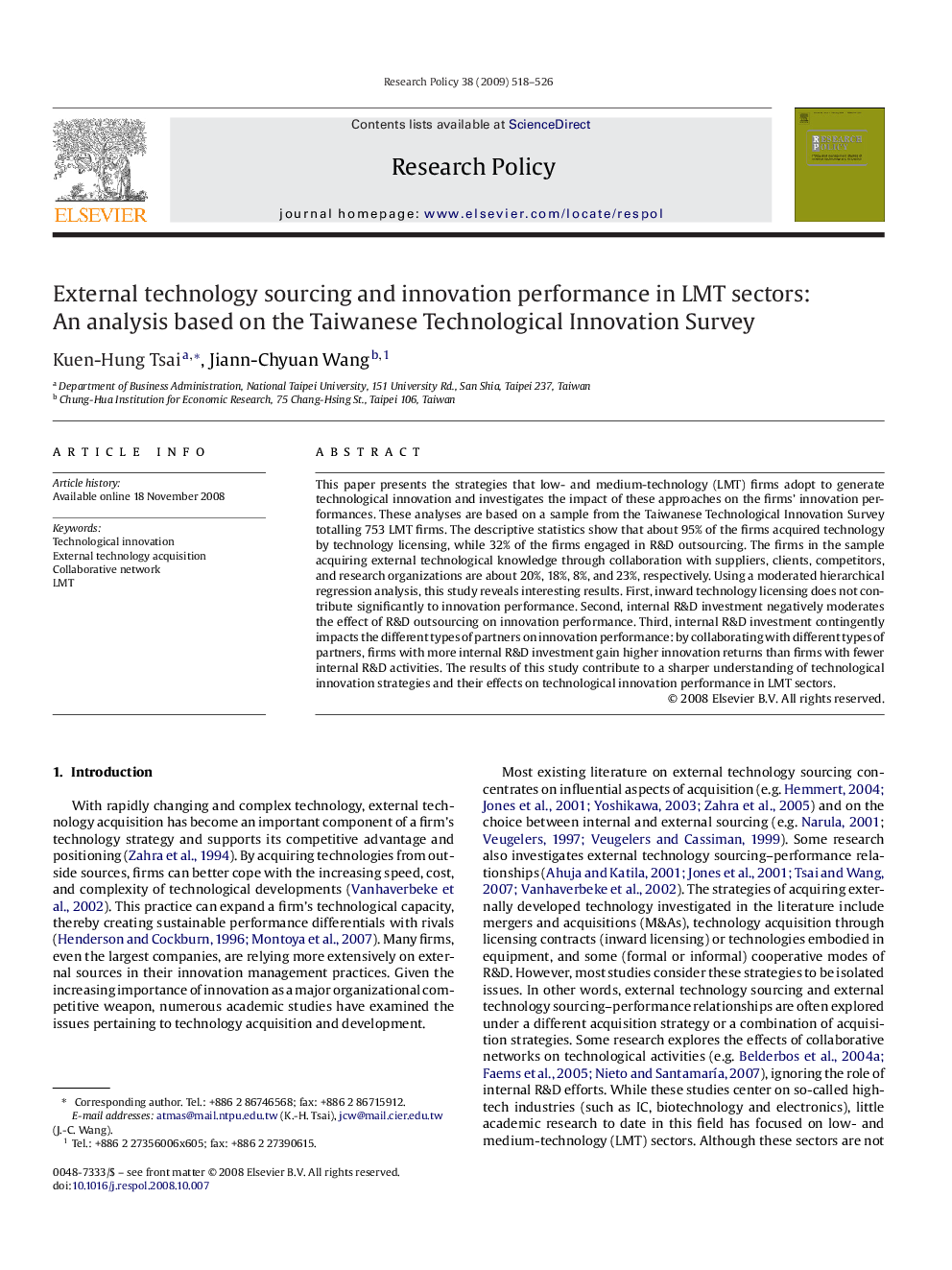| Article ID | Journal | Published Year | Pages | File Type |
|---|---|---|---|---|
| 984245 | Research Policy | 2009 | 9 Pages |
This paper presents the strategies that low- and medium-technology (LMT) firms adopt to generate technological innovation and investigates the impact of these approaches on the firms’ innovation performances. These analyses are based on a sample from the Taiwanese Technological Innovation Survey totalling 753 LMT firms. The descriptive statistics show that about 95% of the firms acquired technology by technology licensing, while 32% of the firms engaged in R&D outsourcing. The firms in the sample acquiring external technological knowledge through collaboration with suppliers, clients, competitors, and research organizations are about 20%, 18%, 8%, and 23%, respectively. Using a moderated hierarchical regression analysis, this study reveals interesting results. First, inward technology licensing does not contribute significantly to innovation performance. Second, internal R&D investment negatively moderates the effect of R&D outsourcing on innovation performance. Third, internal R&D investment contingently impacts the different types of partners on innovation performance: by collaborating with different types of partners, firms with more internal R&D investment gain higher innovation returns than firms with fewer internal R&D activities. The results of this study contribute to a sharper understanding of technological innovation strategies and their effects on technological innovation performance in LMT sectors.
